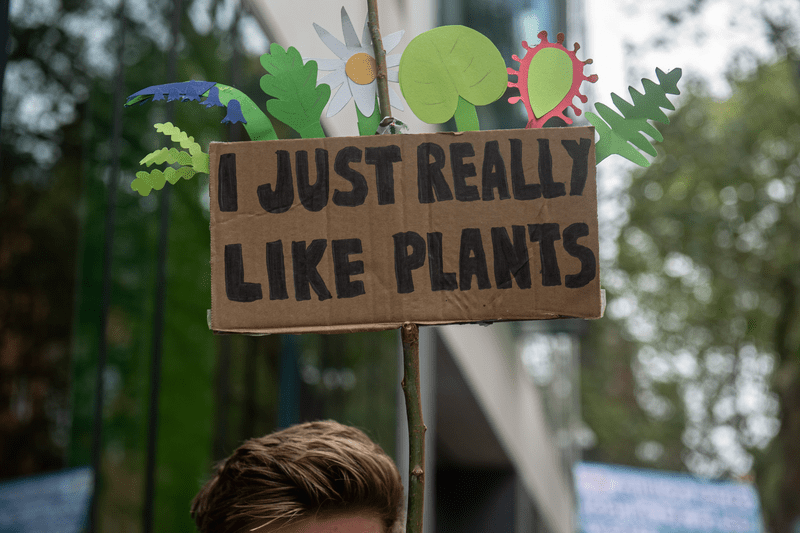Climate change poses risks to businesses, stakeholders and individuals alike. Many individuals are becoming increasingly concerned with the climate crisis and want to work, and do business with, organizations that care about their impact on the environment. In turn, businesses are increasingly promoting their sustainable and green credentials in a move towards reducing their impact on the environment and attracting staff and stakeholders. Yet overstating their position is also problematic and may result in allegations of greenwashing.
So does this combination of factors, together with wide support for developing the “speak-up” culture, mean a likely increase in environment related whistleblowing claims? And what steps should employers take to mitigate these risks?
UK whistleblowing framework
UK whistleblowing laws provide protection to workers who speak up about certain types of wrongdoing, often referred to as “blowing the whistle”. To be protected by whistleblowing legislation, the employee or worker must make a “qualifying disclosure”, namely:
- a disclosure of information (verbal or written);
- made, in the reasonable belief of the individual making the disclosure, in the public interest; and
- that tends to show one or more of a specific kind of wrongdoing, including that any legal obligation has not been complied with or that the environment has been, is being or is likely to be damaged.
If an employee or worker is dismissed or believes they have suffered detrimental treatment because they have made a qualifying disclosure, they can bring a whistleblowing claim in the employment tribunal. Whistleblowing claims can be very costly, both reputationally as the employment tribunal is a public forum, and from a compensatory perspective. There is no cap on the compensation available to a claimant who successfully establishes that they have been dismissed and/or subjected to a detriment because they have made a protected disclosure.
Historically, there have been very few whistleblowing cases brought in the employment tribunal related to environmental matters.
There are six categories of wrongdoing set out in the legislation. The most relevant in this context are environmental damage and a failure to comply with a legal obligation. Historically, there have been very few whistleblowing cases brought in the employment tribunal related to environmental matters. In fact Protect, the whistleblowing charity, has recognised that there is a low number of environmental disclosures reported in the UK. As a result, it has published an environmental whistleblowing toolkit as a starting point for workers to understand their rights and assist them in raising environmental concerns.
Due to the growing public concern over climate change, the increased focus on the environmental, social and governance (ESG) agendas of businesses, and the increase in requirements around climate related disclosures, we anticipate that environmental whistleblowing complaints are likely to increase.
Environmental damage
The expectation is that a disclosure which tends to show that “that the environment has been, is being or is likely to be damaged” could cover a broad range of scenarios. There is no definition of environmental damage in the legislation and although there have been a few cases dealing with the issue, so far, any cases on the point have tended to relate to clear examples of damage to the environment.
For example, in one case from 2008 the claimant worked in a recycling centre. He reported concerns that paper was being buried rather than recycled. The tribunal was satisfied that the claimant had disclosed information which tended to show that there had been damage to the environment. His dismissal was unfair as he had been dismissed for making a protected disclosure.
Many employers are seeking to build a speak-up culture, recognising the importance of transparency and calling out bad practice. In that context and with employees becoming increasingly invested in environmental matters an increase in disclosures of this type seems inevitable.
Whistleblowing and greenwashing
There has also been a rise in public awareness of greenwashing with various government and regulatory initiatives now in place to clamp down on this. Greenwashing is where organizations make inflated or unsubstantiated claims about environmental credentials to appear more environmentally sustainable.
We have yet to see case law connected to employees blowing the whistle about employer greenwashing in the UK, but high-profile media stories in Germany and the US, where employees in the financial services sector have blown the whistle on ESG disclosures, have demonstrated the reputational damage linked to cases of this type.
Employees looking to blow the whistle about greenwashing might seek to rely on the environmental damage category of wrongdoing in the legislation to assert that their disclosure was protected. Depending on the facts, it may be difficult to say that overstating environmental credentials would amount to environmental damage.
The Code sets out guidance for companies on how to ensure green claims are truthful and accurate, including that they must be backed up with substantiated data, and must consider the overall product lifecycle from production to disposal.
An alternative approach may involve greenwashing disclosures showing a breach of a legal obligation. For example, there is now a requirement for certain publicly quoted companies, large private companies and LLPs to meet mandatory climate-related financial disclosure requirements by publishing their steps to address climate change and how it is impacting their strategy and risk management.
In addition, in 2021, the UK’s Competition and Markets Authority updated the Green Claims Code. The Code supports the Consumer Protection from Unfair Trading Regulations 2008, under which it is unlawful – and in some cases a criminal offence – for a trader to mislead consumers in a way that makes the consumer change their buying decision. The Code sets out guidance for companies on how to ensure green claims are truthful and accurate, including that they must be backed up with substantiated data, and must consider the overall product lifecycle from production to disposal. Breaches of the Code are therefore likely also to constitute breaches of the law.
These sources of regulation, (and others) could be relied on by a whistleblower who is raising greenwashing concerns and asserting that in addition to overplaying environmental credentials, a legal obligation has been breached. It is beyond the scope of this Law-Now to explain how businesses can prevent greenwashing in the first place, but please see this article for further information: Sustainability claims and greenwashing in the United Kingdom.
Mitigating risks
There is a fine balance to be struck. There are many benefits to fostering a “speak-up” culture, not least that it means important and serious issues are brought to the employer’s attention meaning the root of the issue can be dealt with. This means employers should have policies and practices in place which encourage employees to report concerns, including concerns about the business approach to sustainability and the environment.
If the organization does not have an open and transparent culture then employees are much more likely to report concerns to external parties instead, such as the Environment Agency, or depending on the situation, the media.
It is then key to ensure that employees are aware of the relevant channels for raising concerns and if whistleblowing complaints are made that appropriate steps to investigate are taken, concerns addressed and appropriate protection for the whistle-blower put in place. Many organizations develop environmental or sustainability networks to give employees a voice in shaping the strategy and often mean that environmental challenges can be raised in a more positive way than might be achieved through a whistleblowing process.
An employee complaining about greenwashing or raising environmental concerns should be taken seriously and may be protected by the whistleblowing legislation.
There is no obligation on an employee to label their complaint as a whistleblowing complaint. Even if the allegation does not prove to be true, this is not a barrier to legal protection; provided the employee had a reasonable belief that the information was true at the time they made the complaint, and the disclosure was in the public interest. The channel through which the complaint was raised also does not impact the protection afforded.
This protection element means that managers need to be trained in spotting a possible protected disclosure, and have an understanding that an employee complaining about greenwashing or raising environmental concerns should be taken seriously and may be protected by the whistleblowing legislation.
We may also see further changes to the law on whistleblowing in the UK. The Government is conducting a review into the effectiveness of the UK system and whether improvements could be made.
In the meantime, we would advise employers to review their whistleblowing procedures to see whether they adequately capture environmental concerns and make sure the relevant people within your organization understand how these types of complaints might need to be dealt with.
For further information regarding the impact climate issues may have on the workplace including other types of employee claims, please see our article on Climate activism and protected beliefs.
Catriona Aldridge is a partner in the UK employment team. Stuart Helmer is a counsel in the Intellectual Property team and head of the CMS London advertising and marketing group. CMS.
Michelle De Santis, Jessica Joel and Eleni Sideris assisted in the drafting of this article.














